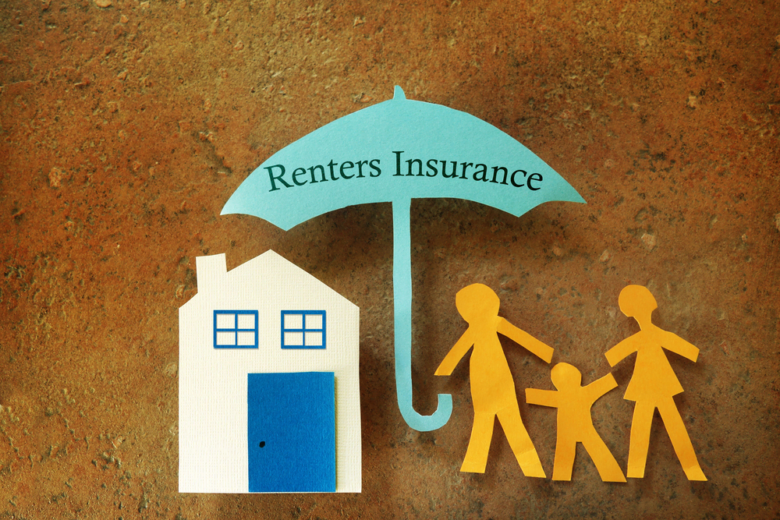Renting a home or an apartment is not an easy task, and even if it is, some people forget one vital thing, and that is rental insurance. At first, it may seem like an unnecessary cost, but if you evaluate it well, it can help you avoid possibly throwing yourself into economic ruin later on. Still, there is no shortage of misleading advice that gets peddled these days, which can make it hard for you when making important decisions.
Are you having a hard time separating the truth from the myth regarding rental insurance? You are not the only one. Some of these misconceptions about rental insurance need clarification because you might end up signing a lease that you do not want. It is worth it!
The Importance of Rental Insurance:
Many tenants should pay attention to the idea of rental insurance, but only a few do. It shields your property from unforeseen catastrophes, for example, from theft or fire. Imagine being at home and suddenly coming to a real empty house with no single item in it owned by you. In case of such a loss without any coverage, it will be excruciatingly expensive in terms of replacing those items. Also, rental insurance usually has most people’s liability coverage. Because if somebody gets injured in your apartment, this covers their medical expenses and legal suit preparations, among other costs, if they sue you. This sense of security is priceless for every renter.
Another important fact is that rental insurance is really inexpensive, on average less than a small dinner outside of home per month. This level of insurance protection in terms of the investment put in for the purpose is recovering very quickly when there is some unexpected occurrence. In other words, having rental insurance simply means one is ready for the unexpected, and therefore the pressure of looking for a new place is lifted, and the person can now relax and enjoy his or her new place.
Myth #1:
A common myth of the rental insurance cover is about the protection of the property by landlords. There are quite a number of tenants that feel that the landlord’s policy will protect them, but that is not the case. The policy insures the loan default risk. It insures structures and sometimes fixtures within those structures. It does not cover any of your belongings or accidents in an apartment.
If a fire does break out, or if your friends are over and someone gets hurt, you would find yourself exposed without proper insurance coverage of your own. This has left renters liable for the replacement of items that were stolen or even the payment of legal fees, which are probably incurred due to disputes. Do not think for a moment that just because you are renting, you are safe. It is safer and more comfortable to seek and get your own rental insurance policy to avoid worries and stress in case such things happen.
Myth #2:
There are many renters who make the common mistake of assuming that their personal property is covered under their landlord’s insurance policy. This turned out to be a harmful delusion. The insurance carried by the landlord is for the structure of the building and common areas and in most cases excludes the two I tenants or their contents. Lodging assures that if a fire erupts or a burglary happens, all is taken care of. Where else?
However, without obtaining any rental insurance, if you happen to lose any of your belongings, there are a lot of expenses that will be incurred when buying those items, like electronics, furniture, clothing, and so many others. Those costs pile up very fast. Renting councils need to be addressed to ensure that they appreciate the fact that there is a need for a policy for themselves. The tenant’s insurance adds that additional coverage other than any other rentals in case of unforeseen occurrences. A confinement cover doesn’t mean that you have to depend on another person’s policy.
Myth #3:
Many people believe that rental insurance is relevant only for expensive items. This line of thinking misses the reality that ordinary items are potentially valuable too. Just sit and think about it—everything electronic, clothing, furniture—they all cost money. Most renters feel quite secure leaving their belongings because they think the neighbourhood is safe. Necessary as burglaries or water spillages can occur anywhere. Trusting in luck alone is not a great decision, especially where your personal belongings are involved.
People also hold the belief that their possessions are insured under the landlord’s insurance policy. Generally, landlords take insurance cover on the structure of the building and not what’s within the rented space. It means that you remain bare, and therefore you have to make sure that you have your own policy. Deluding oneself concerning the necessity of rental insurance, so long as you are not rich or do not live in susceptible places, may entail exposing yourself to huge losses. One realises that costs can build up very fast at times of a crisis.
What Does Rental Insurance Actually Cover?
Rental insurance, on the other hand, is usually designed to insure against the risk of loss or damage to one’s personal property. Such items would be furniture, electronic items, clothing, etc. in the event of burglary, fire damage, or water damage. Liability coverage is also a component of the policy. In case someone is injured due to an accident within your rented premises, this particular coverage may be useful in the payment of medical bills and legal fees that you may incur as a result of being held liable. Other policies even offer coverage of additional living expenses. This benefit covers the need to relocate temporarily when your house is rendered uninhabitable due to modifiable circumstances.
At the outset, it is important to carefully understand the policy’s coverage in detail. Different providers have a different degree of the area and the need for exclusion that may apply to you. What is included in this will be beneficial to you when making time for renters insurance. Adequate insurance coverage will bring the comfort that you need while adjusting to life in a rental unit.
How to Choose the Right Rental Insurance:
Selecting the appropriate rental insurance can be bewildering; however, it does not need to be. The first step is to evaluate the contents you wish to insure. Make a list of the most valuable possessions and estimate the amount to be insured. Then make a choice among the various policies. Search for the basic features like liability coverage and additional living expenses in the event of a calamity. Enquire whether there are any such provisions that may be detrimental to you.
Classifying a budget is also important. Premiums normally differ a lot depending on the coverage limits and deductible limits. Try to compromise with an affordable cost while at the same time ensuring there’s sufficient coverage. Pretty much every question is welcome, so do not shy away from even seeking assistance if outside help is needed. Such terms do help in knowing what you are getting into. Also, try to find out whether there are any discounts available due to miscellaneous reasons such as a purchase of other policies in a bundle or some security measures at your rental premises. Doing all this will direct you towards making the right choice when it comes to your needs.
Conclusion:
In any case, rental insurance should be first considered by anyone in the market for something new. The myths surrounding it can only create misconceptions that will help no renters believe in common myths. When renting, the safety of your items as well as peace of mind should be the case orders of priorities. As we all know, knowledge is power, something that will come in handy with insurance.
Right coverage suitable to you is all it takes to change things around. Don’t let fear or irrationality stand in your way towards rational choices concerning applicable shelter. Knowing the ins and outs of rental coverage has the ability to set you free as a client. Know that this is a journey, and you need not fear, for you are filled with relevant information needed to protect yourself, your property, and your finances.
FAQs:
1. Do I really need to get rental insurance?
While it may not be a legal requirement, it is usually beneficial in protecting one’s assets and your property against incidents like burglary or fire.
2. What is the currently offered coverage for rental insurance?
This type of insurance settles loss of or damage to personal property, theft, medical expenses, liability coverage for injuries within the covered property, and reasonable extra rent if you have to move out temporarily.
3. What is the amount of money I must pay for rental insurance?
On average, this may go between 15 and 30 dollars a month, but it depends on other areas like location, provision of excess coverage, and many more.
4. I am very curious; can I rely on my landlord’s insurance policy for protection?
No! The only protection that your landlord’s insurance policy offers is for the building’s structure, not the contents and liabilities within the unit.
5. What should I do if I have an expensive item?
Should clients possess goods worth more than what standard policies would cover without extensions, such as betteriate’s to other policies—heavy items such as jewellery and electronics?




